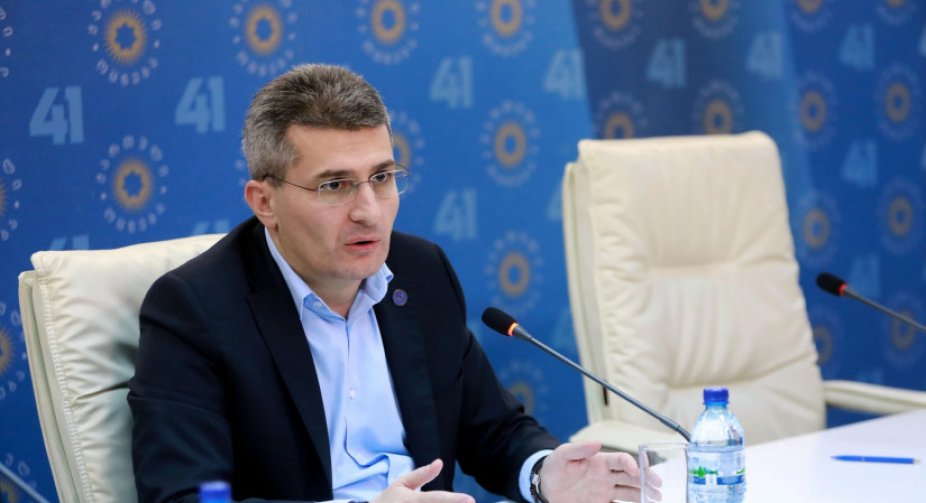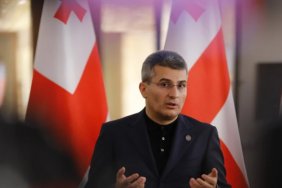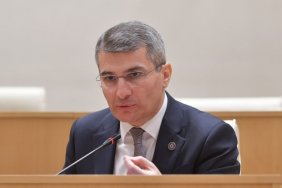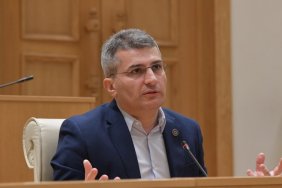Mamuka Mdinaradze, the executive secretary of the Georgian Dream ruling party and leader of the parliamentary majority, on Thursday addressed criticisms regarding the foreign transparency bill reintroduced by the party this week, claiming its distinctions from comparable legislations in other countries, including in the United States.
Mdinaradze claimed the bill, which aims to brand non-commercial legal entities and media outlets in the country as “aligned with the interests of a foreign power” if they obtain more than 20 percent of their funding from abroad, was district from the US Foreign Agents Registration Act, as previously asserted by the US ambassador.
He said while similarities exist, Georgia's version represented a “more accommodating adaptation”, adding the previous version that was rejected last year due to mass protests due to its alleged alignment with a similar Russian law, was akin to the US law.
"We've worked diligently to disassociate the legislation from the 'Russian' label, despite challenges in lobbying," Mdinaradze stated. "Our aim has been to align with European standards. In fact, the European Union has proposed even stricter legislation via a directive from the European Commission. Similar laws have been enacted in France and the United States, reflecting global democratic norms."
Mdinaradze highlighted a “key distinction” in Georgia's proposal - the exclusion of natural persons. “Unlike counterparts in France, the US, Russia, and elsewhere, Georgia's draft law doesn't encompass individuals. This departure, particularly evident in the second article, sets it apart from the stricter regulations in other jurisdictions”, he said. "In our initiative, the focus is on entities rather than individuals, unlike in the Russian model or similar laws elsewhere," Mdinaradze explained. "While terminology varies - from 'principal' to 'influence representative' - the essence remains consistent across jurisdictions. Hence, the primary deviation from the Russian legislation lies in this nuanced approach, particularly articulated in our second article."
Robin Dunnigan, the US Ambassador to Georgia, on Wednesday said her country has conveyed its concerns regarding the proposed foreign transparency bill to the Georgian authorities, both privately and publicly.
The diplomat echoed the sentiments this draft law, if enacted, was feared to deviate Georgia from its European trajectory and hamper the “vital role” of local civil society organizations in assisting the Georgian people.






